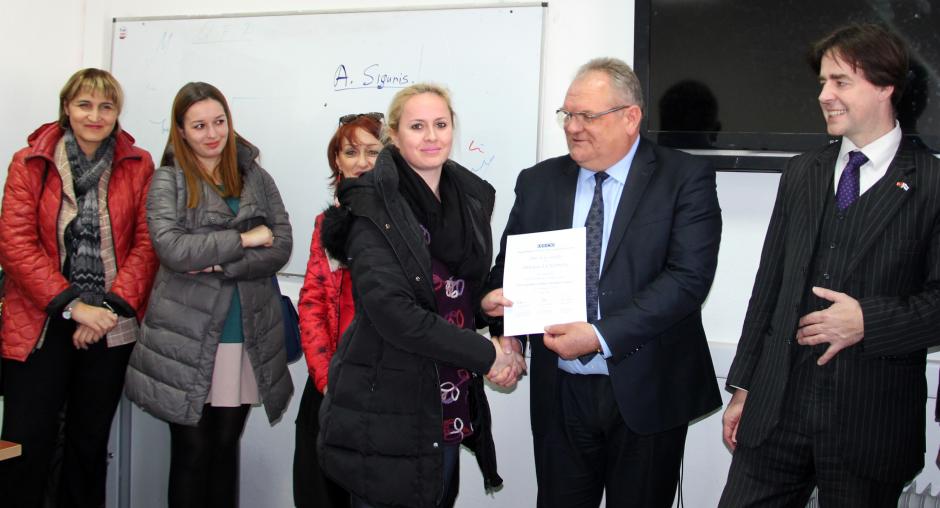OSCE-hosted training course for South-Eastern Europe on handling digital evidence by first responders completed in Tirana

Handling digital evidence by first responders was the focus of a one-week train-the-trainer course for South-Eastern Europe’s criminal justice institutions, which took place from 22 to 26 January 2018 at the Albanian Security Academy in Tirana.
Organized by the OSCE Secretariat’s Transnational Threats Department, with the support of the OSCE Presence in Albania and the Albanian Security Academy, the course was attended by 20 members of various criminal justice institutions from Albania, Bosnia and Herzegovina, the former Yugoslav Republic of Macedonia, Montenegro and Serbia.
The aim of the course was to build up national training capacities of the beneficiaries, enabling them to provide first responders at a crime scene or during the arrest of a suspect with the necessary knowledge and skills to identify and handle digital evidence that might consequently be useful in the investigation of a case. This includes correctly identifying, seizing and transporting such evidence in order to ensure that data is preserved and can be admitted to a court in the case of prosecution.
The course was developed and delivered in co-operation with the University College Dublin’s Centre for Cybersecurity and Cybercrime Investigation.
This course is part of a larger OSCE regional capacity building project and was the first in a series of regional training activities addressing various thematic aspects of combating cybercrime and cyber-enabled crime that will be organized in the coming months. A second training course will take place in February and will focus on basics of the Dark Web and virtual currencies.
The project is a collaborative endeavour of the OSCE Secretariat’s Transnational Threats Department, OSCE field operations in South-Eastern Europe and their respective host authorities. The project’s implementation is steered by a Co-ordination Board which selects and nominates participants for each regional training activity and will later monitor and evaluate local training activities run by the beneficiaries themselves in the second part of the project.
